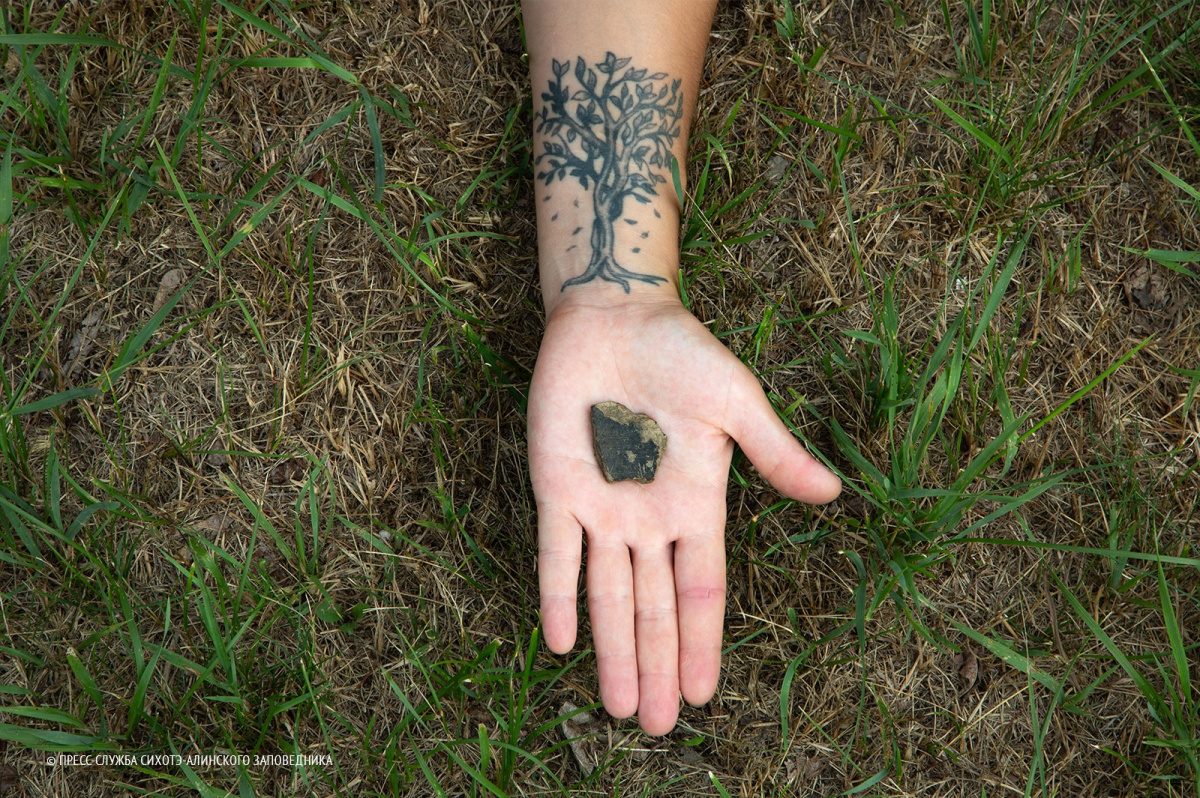

An ordinary tourist excursion around the Sikhote-Alin nature reserve has miraculously turned into an expedition. Its participant, an archaeologist from Khabarovsk, found a fragment of an easel vessel, presumably dating back to the 9th-13th centuries, the press service of the reserve reports on its Facebook page.
The splinter was accidentally found during a trip to Cape Severny by Yevgeny Chernikov, Deputy Head of the Archeology Department of the Khabarovsk Regional Center for the Protection of Historical and Cultural Monuments, who was on vacation in the Sikhote-Alin Nature Reserve and could not walk past the artifact right under his feet.
The fragment was found in the area where, according to the description of the researcher of the Far East Vladimir Arsenyev, Chinese fanzi lived at the beginning of the 20th century. However, according to Evgeny Chernikov, the artifact is more ancient and can be attributed to the era of the Amur Jurchen culture. This is confirmed by the delicate pottery technique - stripes from a potter's wheel are clearly visible on the fragment. Among the Chinese, ceramics differed in thickness, lower-quality firing and color, thin porcelain was also used in everyday life.
Previously, excavations at the site of the discovery of the fragment of the vessel were not carried out, however, in the area of Lake Blagodatnoye, archaeologists found monuments of the age of paleometal. According to Evgeny Chernikov, a find near Cape Severny suggests that there are traces of an ancient settlement in this place, presumably from the early Middle Ages. For more accurate dating, the fragment will be submitted for examination.
 Blogs
Blogs
